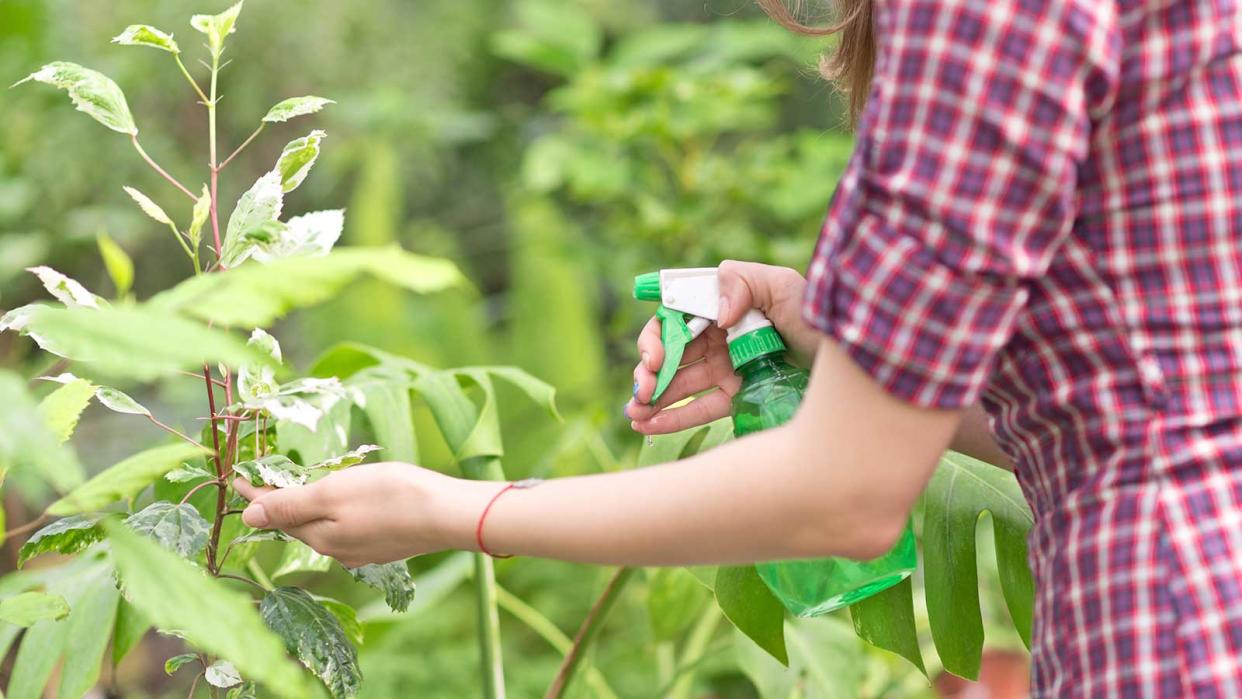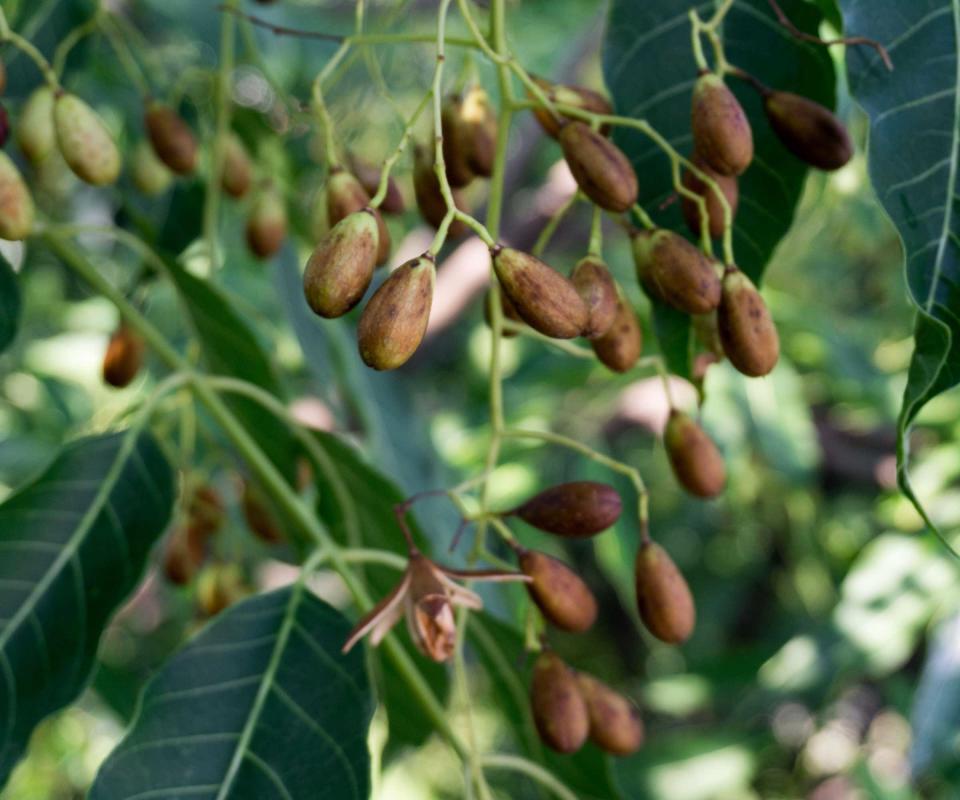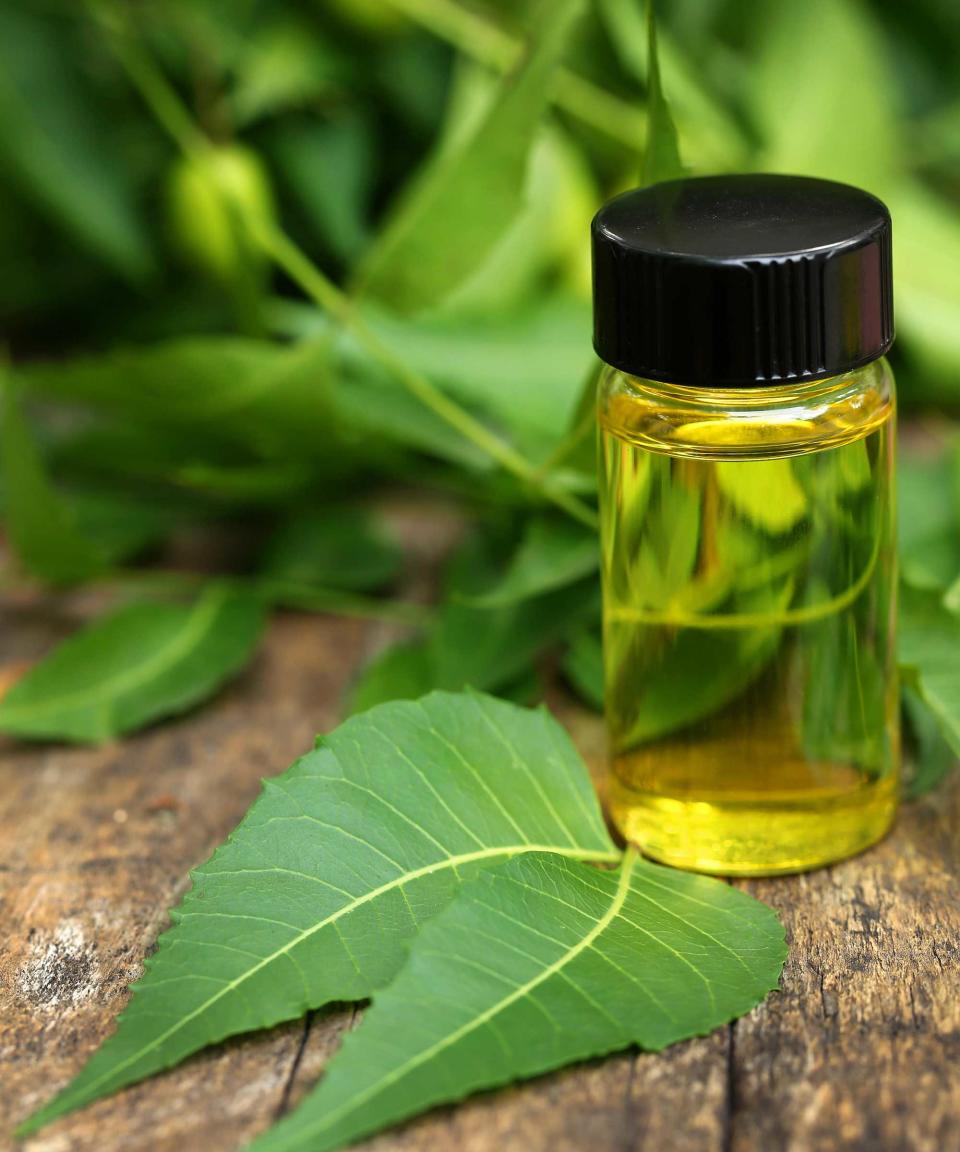Using neem oil on plants – how to tackle pests and diseases with this all-natural solution

If you're interested in natural ways to look after your plants, neem oil may have fallen onto your radar. But what exactly is it, and how can it be used?
This substance is derived from the seeds of the tropical neem tree, which is native to India. Great for organic gardening, it has been used for hundreds of years to treat a range of plant pests and diseases.
Although you can buy pre-made mixes online and in garden centers (Natria Neem Oil Spray from Amazon, for instance), you can also make your own simple concoctions at home.

The benefits of using neem oil on plants
Almost all plants can succumb to a pest invasion or two, whether they're grown indoors or out. But instead of reaching for chemical-laden pesticides, you could tackle them with diluted neem oil, instead. This organic, cold-pressed neem oil from Plantonix at Amazon is very highly rated.
Once ingested from the plant leaves by the interlopers, the active ingredient of neem oil (Azadirachtin) gets to work, disrupting their eating and growth cycles. Aphids, spider mites, whiteflies, mealybugs, thrips, and scale are just some of the bugs it can be effective against, lists Diana Cox, a plant expert from TheGardeningTalk.com.
You can use it to treat an existing pest problem, or as a preventative measure, adds Emily Auffrey, a published plant and home content creator who has over 70 houseplants in her NYC apartment.
'Additionally, neem oil can be employed to combat fungal diseases,' says Diana. These include black spot (a common problem for roses), powdery mildew, and rust.

How to use neem oil on plants
Neem oil can be used on all kinds of plants, including houseplants, ornamental plants, and crops in your vegetable garden. Diana explains two ways to use it: as a foliar spray and as a soil drench.
'For a foliar spray, simply combine one teaspoon of neem oil with one tablespoon of liquid soap in one gallon of water. Thoroughly spray the plant's leaves, ensuring comprehensive coverage, including the undersides. Apply the foliar spray weekly or as needed.'
Gardening expert Tony O'Neill adds that this solution should be applied during the cooler parts of the day (early morning or late evening). Otherwise, it can react with the sunlight and scorch the plant.
'To create a soil drench, mix one tablespoon of neem oil with one gallon of water,' Diana continues. 'Gently pour the solution around the plant's base, taking care to avoid contact with the leaves. Administer the soil drench on a monthly basis or as required.'
Be aware that neem oil has a strong smell, as Emily warns. Because of this, you may want to open your windows or spray houseplants outdoors before bringing them inside again, she suggests.

FAQs
Is neem oil safe to use?
Neem oil is safe to use when applied and stored properly. It should never be drunk and care should be taken so that it doesn't splash in your eyes.
'Even though it's non-toxic, wearing gloves is recommended to avoid potential skin irritation,' advises gardening expert Tony O'Neill. 'It should also be kept out of reach of children.
'As with all plant-care products, testing neem oil on a small portion of the plant first is advisable to ensure it does not cause any adverse reaction,' he adds.
Neem oil poses little threat to pollinators, such as bees, as they don't ingest foliage. However, spraying them directly with neem oil can harm them, so take care to avoid this.
Finally, although neem oil can be used on crops, remember to wash your fruit and veggies thoroughly before eating.
Can you use neem oil on tomato plants?
If you're growing tomatoes in your yard, neem oil can come in handy.
Unfortunately, it's not much use for treating the dreaded tomato blight. However, it's often used to effectively treat powdery mildew on tomatoes. And, in terms of pests, it's great at tackling aphids, which often target this crop.
Whatever the reason for applying neem oil to your tomato plants, ensure you wash the harvested fruit thoroughly before you eat it, as mentioned above.
Not only is seeking out natural gardening solutions better for you and your yard, but it's also often better for your wallet. And neem oil isn't the only option – there are other types of homemade bug sprays worth trying, too, made from ingredients that may already be in your cupboard.

